#mixed asian
Photo

Long Haired Brunette on Bare Back Dress
25 notes
·
View notes
Note
Just because someone has roots in Hawaiʻi does not make it OK for people to use the term hapa or quapa. Also, what is a quapa.. just goes to show the lack of understanding by outsiders. Hapa already means mixed and is not defined by blood quantum in current Hawaiian language colloquial speaking.
I'm not the one who decides what terms people use. I just know that in mixed Asian communities, especially on the internet, and especially in older forums, this is a term very commonly used. "Quapa" arose from those who identified as "hapa" (in these communities) saying those with less than strictly 50% needed to be called something different.
Until Tumblr, I never heard that anyone was against the words being used that way; because mixed people from Hawai'i were the first to form large communities for mixed Asians, they introduced the word to our vocabulary, and many assumed it was ok to use without knowing the context of its origin. There is ample work to be done educating people that this isn't correct.
"Wasian" and "blasian" were most commonly used in porn, and left too many ethnicities out, creating a need for something more inclusive. And both of those options are sort of like "latinx", which is to say that they're well outside the phonotactic constraints of many Asian languages. I don't think it's right to keep using "hapa" if it's against the wishes of Hawai'ian people, but I don't think it will go away entirely a suitable alternative is found. (which of course doesn't excuse it, I'm just being pragmatic)
3 notes
·
View notes
Text
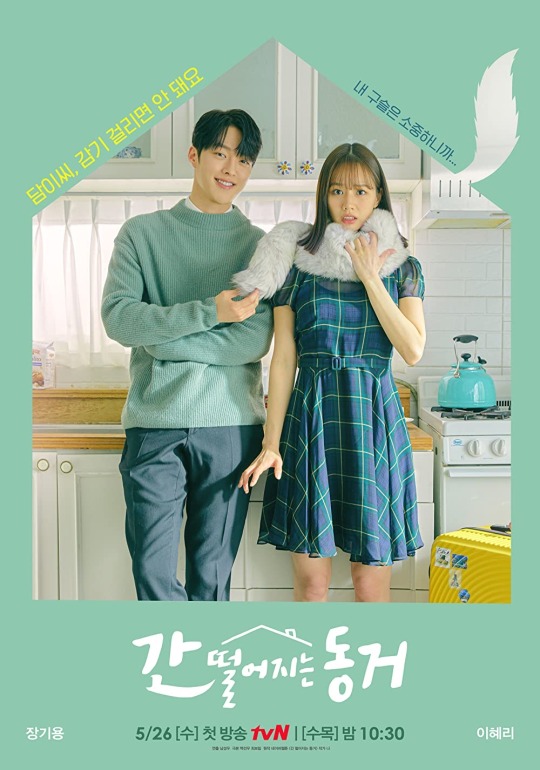

Currently watching
#tv shows#currently watching#kdrama#koren#chinese#mixed asian#fantasy#roommate is a gumiho#Nora from queens#my roommate is a gumiho#awkwafina
3 notes
·
View notes
Text
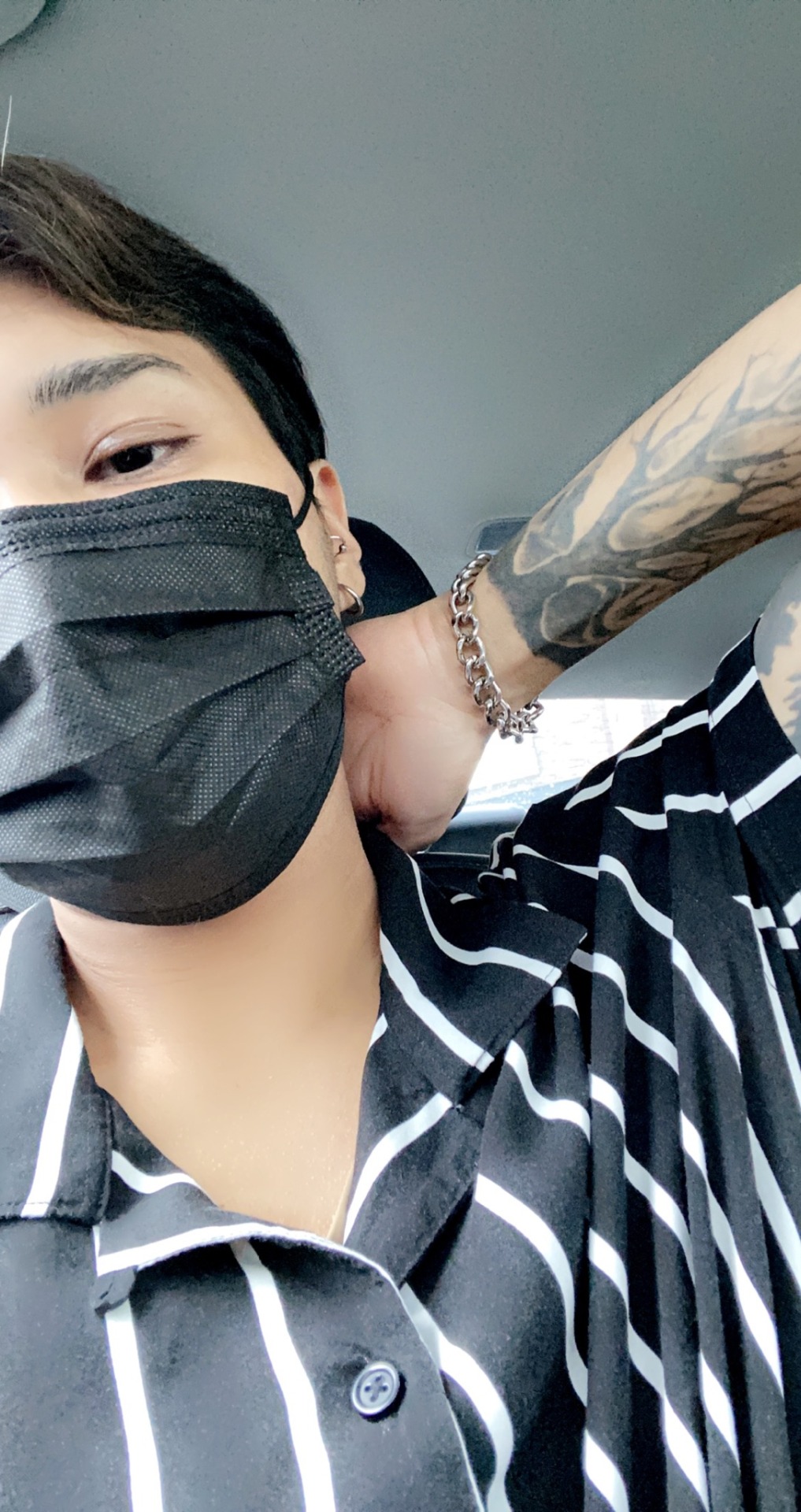
(^_^)v
#me#fashion#ulzzang boy#male fashion#menswear#follow me#ootd#poc excellence#dope#mens jewelry#tattoos#stripes#mixed asian#mensfashion#mexican fashion#asian fashion#express fashion
11 notes
·
View notes
Note
I can't find pictures of mixed japanese people in kimonos, I know its silly but I want to see it before I make myself a yukata or something- and I have no idea if my dad would have childhood pictures like this.
I found a few on Tiktok ❤️ hope you find inspiration and strength from them! Remember that you don't need permission to practise *your* culture!
https://vt.tiktok.com/ZS8YLkW6u/
https://vt.tiktok.com/ZS8YLfroV/
https://vt.tiktok.com/ZS8YL7BbY/
https://vt.tiktok.com/ZS8YLmCJC/
5 notes
·
View notes
Text
I rarely mention the discomfort I feel whenever I interact with heavily white groups or heavily Filipino groups to friends or even my family for that matter.
Being half Asian has always made me proud of my cultural roots, even if I can't speak my mother's dialect very well...or understand over half of what she says to me when I try and hold a conversation with her. I at least made the effort to connect my culture to myself.
Though since I live in the US, most of my friends are white or Latinx. My POC friends aside, being around my white friends made me feel TOO Asian. And on the opposite hand, whenever I went to a Filipino house party I felt TOO WHITE.
While I look almost too light to be a Filipina, I look too tan to be American. I am mixed, and I'm learning to embrace myself as both.
To all the mixed Asians, remember no matter how alienating it may feel. We belong here. You belong here.
#Happy AAPIHM#AAPIHM#asian american and pacific islander heritage month#half Filipino and proud#mixed asian#halfer
7 notes
·
View notes
Text
Here’s a quick and comprehensive video of how I made paper 📝
#diy craft#diy#diy projects#paper#paper art#papercraft#paper making#mixed media#mixed medium#hawaiian artist#black artist#asian artist#my art#procreate
14K notes
·
View notes
Text
Celebrating Mixed Asian Day: A reflection

Published Saturday, September 16th, 2023 — In 2020, the U.S. census recorded 33.8 million people who identify as multiracial, accounting for 10.2% of the population. With this number having more than tripled from what was documented in 2010, it has quickly become clear that more than ever, we need spaces where multiracial people can connect with others like them and celebrate both their own uniqueness and the uniqueness of their experiences.
While many "official" months have been established as periods during which certain groups are acknowledged and celebrated, there are still groups who have unequal access to certain spaces or are being left out of spaces altogether. With so many people existing in the in-between, we've long outgrown the binary approach to race; and the need for more literature on multiraciality and more representation for multiracial people is growing as quickly as the population itself.
Mixed Asian Day
Today, while the main event is being hosted in New York, Mixed Asian Media is inviting people who identify as mixed Asian to celebrate their diverse heritage and bring their own perspectives to our collective narrative, regardless of their ability to attend the event in conjunction with their third annual Mixed Asian Media Fest or their location.
It brings me more joy and comfort than I can express to know that MAM is using their platform to provide a space so that mixed Asians can have a voice in the cultural and racial landscape of the world we live in. The more that we can make ourselves seen and heard, the more representation we can secure for those growing up who have never seen anyone in media who looks like them.
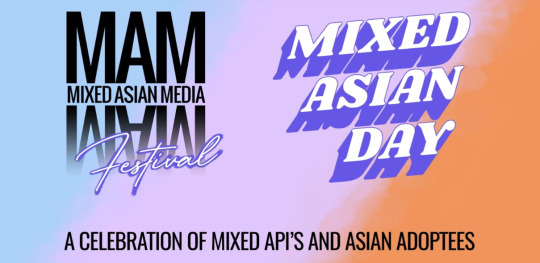
Growing Up Mixed Asian
I think that a lot of the work that has gone into becoming secure in my own identity has happened within the last two or three years. Growing up was not without its own handful of uncomfortable experiences and feelings that I wasn't emotionally mature enough to articulate, but I had a very different view of myself until around the time the COVID-19 pandemic hit; and it forced me to reevaluate what I thought I knew about myself and how the information I had had shaped my identity.
My parents divorced when I was very young so I have no idea if they even had a plan for how they were going to raise a biracial child; as it happened, I only saw my dad on weekends, so my mom had the most opportunity to raise me with Korean culture, traditions, and values. It's not that I forgot that I was also Nicaraguan, it's more that I had no point of reference for what it even meant to be Nicaraguan. My dad rarely ever spoke about Nicaragua—and he never spoke to me in Spanish, although he spoke Spanish in front of me. With knowledge of my heritage but no idea of how I was supposed to go about my life with that knowledge in hand, I simply spent a lot of time being frustrated about how people treated me and not knowing how to process any of it in a healthy, productive way. I tried existing without having to explain myself to anyone, which worked for a little while. The other kids in my classes all throughout elementary school never said anything to me, at least not to my face, maybe because my mom was a teacher at the school—had been their teacher in kindergarten. But as I got older and other people around me got older and they started piecing together what they knew about race and appearances, it became more difficult to get away with simply existing.
I think this is largely due to the fact that most monoracial people don't realize the privilege they have in their monoraciality, and it shows in the way they speak to multiracial people. On our bingo cards, we have wonderful little squares that are cornerstones of the multiracial experience, including everyone's favorite question, "What are you?" or "Where are you from?", backhanded compliments ("That's why you're so pretty!"), and everyone's second favorite question, "Which half do you identify more with?" Sometimes you don't even realize that the backhanded compliments were backhanded compliments and then, like me, you end up being angry about something someone said to you several years ago. (I also ended up being angry about a lot of terminology that didn't bother me before, like "exotic"; and I stopped referring to myself as "half Korean and half Nicaraguan" in favor of the term "biracial". There are other terms that are embraced by other mixed race communities but I never really latched onto any of them. "Halfie", quite frankly, feels derogatory and "hapa" in its original context doesn't apply.)
Most of the time, though, you're just really angry because it's none of anyone else's business what your ethnicity pie chart looks like. It's your pie, after all. Why should anyone else care what it looks like?

Needless to say, I had a lot of things to sort through as I got older, including how I felt about Asian people and how I felt about Hispanic people. Having grown up in predominantly Asian neighborhoods, I always felt welcomed there, but because the Korean genetics won out in terms of my appearance, I had no shortage of experiences in other environments that were racist at worst and ignorant at best.
As a kid going to school in downtown LA where the student population was incredibly diverse, there were times when I wanted to tell the Hispanic kids making fun of me on the shared playground that I was one of them just so that they would stop—but kids aren't usually having conversations about race and appearances. They're just being kids, but the memories stuck, as they often do; and as I continued to exist in predominantly Asian spaces, I subconsciously distanced myself from my Hispanic heritage and any possibility of having a community with other Hispanic people—something I've only recently been able to acknowledge.
My dad was worried that I hated Hispanic people, or maybe even that I hated being Hispanic—something that I should've realized when I got what's called a magic straight perm, a semi-permanent hair straightening solution, for the second time when I was nineteen. Honestly, while it was much easier to run a brush through my hair during that time, sitting at the salon for four hours was not fun. I have what some people might call an overabundance of hair, and it's very thick, which meant that the Korean lady who had been doing my hair for almost my entire life had to treat my hair twice with the straightening product in order to get it to take. The magic perm was supposed to last six to eight months but maybe my curls were too powerful because I had to constantly straighten my ends in order to maintain it; and I ended up damaging so much of my hair that after about a year, I cut it short and got a perm to bring my curls back. My hair was so dry and undefined for ages that when I finally brought it back to life, I decided that I would never straighten my hair again—until I got my hair cut at a Vietnamese hair salon in 2020 and they straightened my hair before cutting it. I was so angry that I refused to go back there, even though they had done an excellent job with my haircut.
The hair has been a touchy subject for a while, partly because people always want to touch it but also because it's the one thing that throws everyone off when they look at me and try to reconcile what they know about Asians and their appearances. It took almost frying my entire head of hair for me to appreciate it, even though my mom has been perming her hair almost my entire life so that she could have hair like me.
The other main catalyst for my shift in perspective was a recent set of updated results from AncestryDNA. When I was young, my mom had told me the story of how my grandfather, who came from a long line of "pureblooded" Spaniards, married my grandmother, who is Nicaraguan, Italian, and indigenous, and upset his entire family. I spent most of my life thinking that my Italian heritage was about an eighth of my makeup—until my AncestryDNA results updated for the sixth or seventh time and came back showing that Italian only accounted for 2% while Nicaraguan and Spanish accounted for 19% and 17%, respectively. The change in percentage for my Spanish DNA really threw me for a loop because, you know, colonization; and that was something else I had to wrap my head around because Nicaraguans themselves are the result of the Spanish mixing with the indigenous people in what is now known as Nicaragua.
It's all rather crazy.
I'll admit that I don't know much about Nicaraguan culture, mostly because my dad says there's not much to know every time I ask him, but I have a huge affection and appreciation for Hispanic and Latin American cultures in a very general sense. I still don't speak Spanish, even though I can read it and understand it on a very basic level; and the food has always been what makes me feel the most connected. I think I've had tamales made in so many different ways by people from different countries and I really, really love Peruvian food. I also find meaningful connection through art—music in particular—and I watched Encanto at least once or twice a week every week for about a year following its release, just because I saw so much of my own family in the Madrigals, including my own role represented by Isabela and Luisa. But just because I've embraced my Hispanic culture more doesn't mean that I still don't feel out of place when my dad leaves me by myself in the middle of the produce section at Northgate market or when the owner of a clothing store in downtown LA thought I was a family friend instead of my dad's daughter. I've had people at parties that were thrown at my dad's house talk about me in Spanish right in front of me as if I wasn't there—which I understood perfectly, even if I couldn't snap back. Whenever I go out with my dad. his wife, and my half-sister—who is full Hispanic since her mom is Colombian—I also feel like they're looking at me or that they think I'm adopted. Honestly, it makes me feel pretty terrible.
It's something I haven't been able to move on from completely but I'm actively trying to put those negative experiences aside so that I can focus on how very proud I am of being Nicaraguan and Korean rather than in spite of being Korean.
On the opposite end, I actually discovered later in my twenties that Asian people also have some not-so-nice opinions where mixed Asians are concerned, which didn't make me feel great either; and Koreans especially still look at biracial Koreans as foreigners instead of Koreans, although my experience has probably been more favorable since I speak Korean fluently. I'd had so much self-confidence about my Koreanness up to that point, thinking that I had checked enough boxes that no one would doubt me but it turns out that I have to field questions in that regard as well—which then led to a doubling down on self-education and cultural immersion to prove that I am Korean enough. And maybe I have expended more effort into proving that I'm Korean enough instead of trying to prove that I'm Nicaraguan enough because I believed the latter to be a lost cause—but the reality is that I shouldn't have been trying so hard to prove either because regardless of how much I know, I can't rewrite my own DNA any more than anyone else can.
After that, I can now just be.
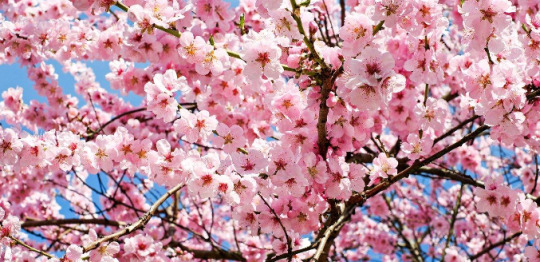
Conclusion
One of the biggest ways in which I've always gotten in my own way is that I was so utterly convinced that being biracial was the only thing people were ever going to notice about me—that it would become my default identifier. People wouldn't remember me as a great writer or musician; instead, I would always be known as the mixed person because that would be the most memorable thing about me. I also thought I was alone; I can count the number of mixed Asians I know or have known personally on just over one hand and I wasn't close enough to most of them to try to build a tiny community for just us so that we would have someone to talk to about our shared experiences.
What I want most for myself and for other people who identify as mixed Asian is that by having more spaces like Mixed Asian Day where we can fully embrace our identities, we can stop feeling like we have to prove ourselves to others—that we are Asian enough—that we are enough. More than that, it allows us to see that we have a community of people with similar experiences, people who look like us, people with whom we can relate; and it shows us that we are capable of anything and everything, just as much as anyone else. We are just as multi-faceted, just as diverse, just as unpredictable and full of possibilities.
Happy Mixed Asian Day, you beautiful people. This day is ours.
#GeniusLabThinks#Mixed Asian Day#Mixed Asian Media#Mixed Asian#Mixed Race#Biracial#Multiracial#AAPINH
1 note
·
View note
Text
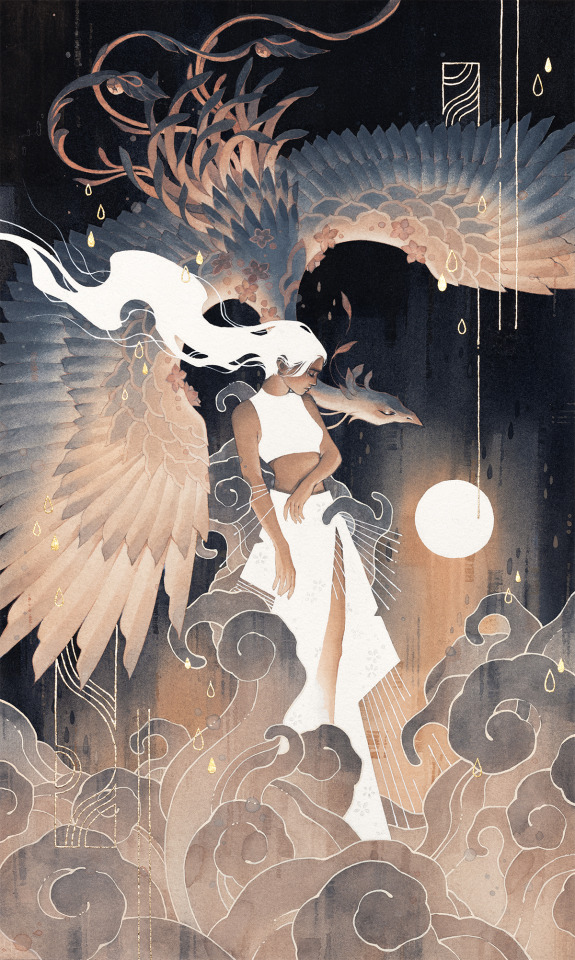
The final piece from my recent show, ‘In Harmony.’ The Eastern Phoenix is often associated with harmony and new beginnings. In trying to portray those associations, the body is decorated with floral motifs; little sprouts blooming from its back, and tail feathers resembling a blossoming flower #brbchasingdreams
prints | tutorials
#brbchasingdreams#art#painting#watercolor#mixed media#art style#artstyle#traditional#traditional art#gold leaf#surreal#surrealism#asian art#fables#mythological creatures#myth#phoenix#pencil#original art#artist#artists on tumblr#illustration
5K notes
·
View notes
Text
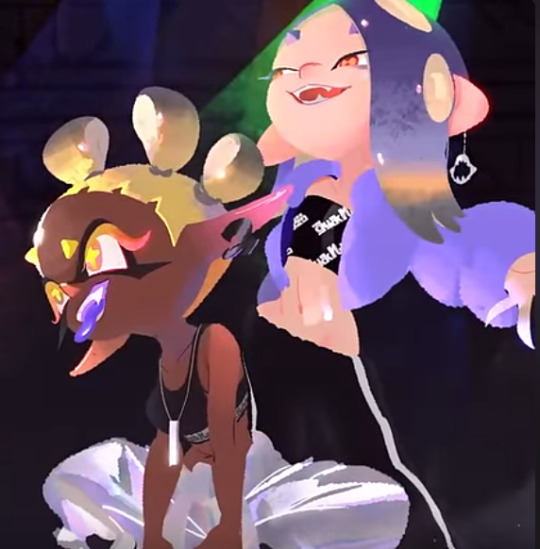
769 notes
·
View notes
Text
Sri Lankan Fairies and Senegalese Goddesses: Mixing Mythology as a Mixed Creator
[Note: this archive ask was submitted before the Masterpost rules took effect in 2023. The ask has been abridged for clarity.]
@reydjarinkenobi asked:
Hi, I’m half Sri Lankan/half white Australian, second gen immigrant though my mum moved when she was a kid.
My main character for my story is a mixed demigod/fae. [...] Her bio mum is essentially a Scottish/Sri Lankan fairy and her other bio mum (goddess) is a goddess of my own creation, Nettamaar, who’s name is derived from [...] Wolof words [...]. The community of mages that she presided over is from the South Eastern region of Senegal [...] In the beginning years of European imperialism, the goddess basically protected them through magic and by blessing a set of triplets effectively cutting them off from the outside world for a few centuries [...]
I was unable to find a goddess that fit the story I wanted to tell [...] and also couldn’t find much information on the internet for local gods, which is why I have created my own. I know that the gods in Hinduism do sort of fit into [the story] but my Sri Lankan side is Christian and I don’t feel comfortable representing the Hindu gods in the way that I will be this goddess [...]. I wanted to know if any aspect of the community’s history is problematic as well as if I should continue looking further to try and find an African deity that matched my narrative needs?
I was also worried that having a mixed main character who’s specifically half black would present problems as I can’t truly understand the black experience. I plan on getting mixed and black sensitivity readers once I finish my drafts [...] I do take jabs at white supremacy and imperialism and I I am planning to reflect my feelings of growing up not immersed in your own culture and feeling overwhelmed with what you don’t know when you get older [...].
I’m sorry for the long ask but I don’t really have anyone to talk to about writing and I’m quite worried about my story coming across as insensitive or problematic because of cultural history that I am not educated enough in.
Reconciliation Requires Research
First off: how close is this world’s history to our own, omitting the magic? If you’re aiming for it to be essentially parallel, I would keep in mind that Senegal was affected by the spread of Islam before the Europeans arrived, and most people there are Muslim, albeit with Wolof and other influences.
About your Scottish/Sri Lankan fairy character: I’ll point you to this previous post on Magical humanoid worldbuilding, Desi fairies as well as this previous post on Characterization for South Asian-coded characters for some of our commentary on South Asian ‘fae’. Since she is also Scottish, the concept can tie back to the Celtic ideas of the fae.
However, reconciliation of both sides of her background can be tricky. Do you plan on including specific Sri Lankan mythos into her heritage? I would tread carefully with it, if you plan to do so. Not every polytheistic culture will have similar analogues that you can pull from.
To put it plainly, if you’re worried about not knowing enough of the cultural histories, seek out people who have those backgrounds and talk to them about it. Do your research thoroughly: find resources that come from those cultures and read carefully about the mythos that you plan to incorporate. Look for specificity when you reach out to sensitivity readers and try to find sources that go beyond a surface-level analysis of the cultures you’re looking to portray.
~ Abhaya
I see you are drawing on Gaelic lore for your storytelling. Abhaya has given you good links to discussions we’ve had at WWC and the potential blindspots in assuming, relative to monotheistic religions like Christianity, that all polytheistic and pluralistic lore is similar to Gaelic folklore. Fae are one kind of folklore. There are many others. Consider:
Is it compatible? Are Fae compatible with the Senegalese folklore you are utilizing?
Is it specific? What ethnic/religious groups in Senegal are you drawing from?
Is it suitable? Are there more appropriate cultures for the type of lore you wish to create?
Remember, Senegalese is a national designation, not an ethnic one, and certainly not a designation that will inform you with respect to religious traditions. But more importantly:
...Research Requires Reconciliation
My question is why choose Senegal when your own heritage offers so much room for exploration? This isn’t to say I believe a half Sri-Lankan person shouldn’t utilize Senegalese folklore in their coding or vice-versa, but, to put it bluntly, you don’t seem very comfortable with your heritage. Religions can change, but not everything cultural changes when this happens. I think your relationship with your mother’s side’s culture offers valuable insight to how to tackle the above, and I’ll explain why.
I myself am biracial and bicultural, and I had to know a lot about my own background before I was confident using other cultures in my writing. I had to understand my own identity—what elements from my background I wished to prioritize and what I wished to jettison. Only then was I able to think about how my work would resonate with a person from the relevant background, what to be mindful of, and where my blindspots would interfere.
I echo Abhaya’s recommendation for much, much more research, but also include my own personal recommendation for greater self-exploration. I strongly believe the better one knows oneself, the better they can create. It is presumptuous for me to assume, but your ask’s phrasing, the outlined plot and its themes all convey a lack of confidence in your mixed identity that may interfere with confidence when researching and world-building. I’m not saying give up on this story, but if anxiety on respectful representation is a large barrier for you at the moment, this story may be a good candidate for a personal project to keep to yourself until you feel more ready.
(See similar asker concerns here: Running Commentary: What is “ok to do” in Mixed-Culture Supernatural Fiction, here: Representing Biracial Black South American Experiences and here: Am I fetishizing my Japanese character?)
- Marika.
Start More Freely with Easy Mode
Question: Why not make a complete high-fantasy universe, with no need of establishing clear real-world parallels in the text? It gives you plenty of leg room to incorporate pluralistic, multicultural mythos + folklore into the same story without excessive sweating about historically accurate worldbuilding.
It's not a *foolproof* method; even subtly coded multicultural fantasy societies like Avatar or the Grishaverse exhibit certain harmful tropes. I also don't know if you are aiming for low vs high fantasy, or the degree of your reliance on real world culture / religion / identity cues.
But don't you think it's far easier for this fantasy project to not have the additional burden of historical accuracy in the worldbuilding? Not only because I agree with Mod Marika that perhaps you seem hesitant about the identity aspect, but because your WIP idea can include themes of othering and cultural belonging (and yes, even jabs at supremacist institutions) in an original fantasy universe too. I don't think I would mind if I saw a couple of cultural markers of a Mughal Era India-inspired society without getting a full rundown of their agricultural practices, social conventions and tax systems, lol.
Mod Abhaya has provided a few good resources about what *not* to do when drawing heavily from cultural coding. With that at hand, I don't think your project should be a problem if you simply make it an alternate universe like Etheria (She-Ra and the Princesses of Power), Inys (The Priory of the Orange Tree) or Earthsea (the Earthsea series, Ursula K. Le Guin). Mind you, we can trace the analogues to each universe, but there is a lot of freedom to maneuver as you wish when incorporating identities in original fantasy. And of course, multiple sensitivity readers are a must! Wishing you the best for the project.
- Mod Mimi
#asks#multiracial#multicultural#south asian#sri lankan#senegalese#west african#identity#representation#worldbuilding#fantasy#mythology#folklore#fairies#deities#adoption#identity issues#mixed experiences#coding
523 notes
·
View notes
Text
One thing that is important to me when discussing Cassandra Cain is the fact that she didn't develop her anti-killing moral position because of the bats. Neither does she have her moral code because she's Bruce's obedient golden child. Instead she decided at around age 8 that killing anyone (even some random criminal like in the 2000 batgirl series) was fundamentally wrong because it made them feel fear and pain. Finding out the bat-code had a similar perspective about killing was more validation than anything else. She would be saving everyone she could with or without batman.
She created her own moral framework against that her (in the 2000 series at least) white father. In spite of the fact the fact that her father literally objectified and dehumanised her, she fought to speak and be heard. She chose her own destiny, Babs and Bruce just helped her along the way.
As an Asian character it's important to me she wasn't 'taught' morals by white Americans, but rather she has a code that she developed herself. She doesn't listen to Bruce half the time, and she's more loyal to the concept of the bat symbol than anyone who wears it. She consistently disobeyed him in her original run. All these things aspects help her avoid being just a character with white saviour undertones, and allow her to instead be a heroic beacon of life and compassion in her own right.
#cassandra cain#batman#cass cain#batgirl#batgirl 2000#black bat#orphan#dc meta#im only like a quarter asian#but she means so much to me as a mixed person
906 notes
·
View notes
Note
uhh hi!! found this blog after taking a moment to process that I'm 1/4 Japanese and white am generation one having not grown up bilingual. I am the eldest, it gives me a weird sense of responsibility for it even though its not my fault. I've always felt shame about reconnecting given just our family history and the general trend of white people posing as asian. Ea commonly, seemingly bc its palatable to them? hate it. anyways wanted to know if anyone relates. maybe reach out for friends too.
hello! welcome! plenty of people have reached out to this blog with similar feelings and experiences. it's totally normal to feel shame around your non-white identity in a white supremacist society. recognise these thoughts are not your own but are those of a society that would prefer you feel shame and be assimilated instead of connected. we have no control over the circumstances of how we're born and raised, but you do have more control over how you choose to grow as an adult. work towards choosing to be proud in a world that would prefer you shameful and colourless and don't worry about the culture vultures. they have nothing on your genuine story of connection. our reconnecting tag has tonnes of general reconnecting advice. if anyone wants to connect with this anon/has any advice, please reply/reblog. all the best ❤️
4 notes
·
View notes
Text
2022年06月23日 — An Affluenza of Culture
With yet another ship resting on the bottom of a bottomless sea, I am engulfed in longing. I had wished to see it before it fell— I had never seen it before; I had never known it before, but here I am grieving the loss of something that I might have never even experienced in any sort of lifetime.
Separated by the biggest stretch imaginable from everywhere else in the world, I am sad to realize that though my blood carries with it a flow from many far away lands, none of those lands I long for could be my home. This small world I live in where the borders are sandy and waterlocked on all sides is mine to love for the small eternity I am alive. While my home will always be my home, I have many wishes to see the home of my blood and with each slipping day I realize I may never leave which is as tackling a thought as it is that I may not stay.
Here where everything is blessed and everything is mine.
There where everything was beautiful and only ever mine in some universe where I do not reside.
I am wanting and waiting, terrified and sorrowful, resigned in self-pity. An affluenza of culture, of which I am blessed to be rich in the scheme of the world. It is strange how when I am not aware to how bountiful my experience has been, I only feel poor and isolated and anguished.
0 notes
Note
I'm sorry, this was bothering me enough to send in an ask.
The stupid question is: how strict is Earth-Kingdom-is-China vs Fire-Kingdom-is-Japan generally? I mostly ask because although none of the canon characters use real Japanese names, but it feels like everyone uses Japanese names for Fire Kingdom and Chinese for Earth, which makes Chinese Wanyi for Zuko's ship not fit in.
I mean, the waters are muddied from China's historical domination over the area, and it's a really great pun, but I woke up and my brain wouldn't let go of the entirely petty issue.
Ugh. Sorry for the stupid ask, especially since I don't come bearing any like funny trivia with to mitigate with. Please feel free to disregard as well, especially since I'm too cowardly to link to my actual tumblr account.
There's absolutely no strictness, because that's a fanon division anyway, and not one I adhere to. Fanon is fake and we can make of it what we want, and I want the pretty ship name!
#I tend to use Japanese names and culture#because I minored in Japanese and lived in Japan for awhile#I use Chinese and other Asian-country concepts as I become aware of them#the show itself deliberately mixes cultures across the board#probably because they realized making the Fire Nation == Japan would be#Uh#Rather on the nose#Historically speaking
513 notes
·
View notes